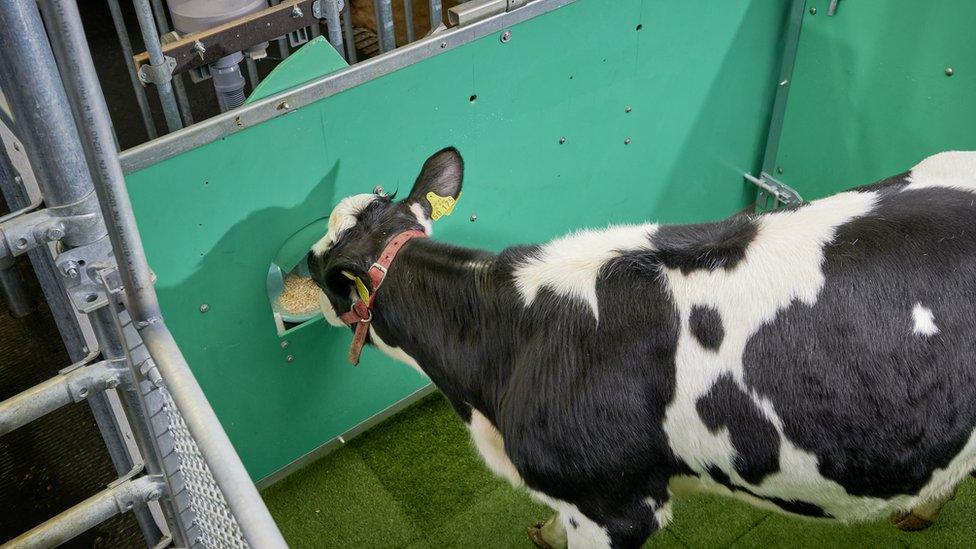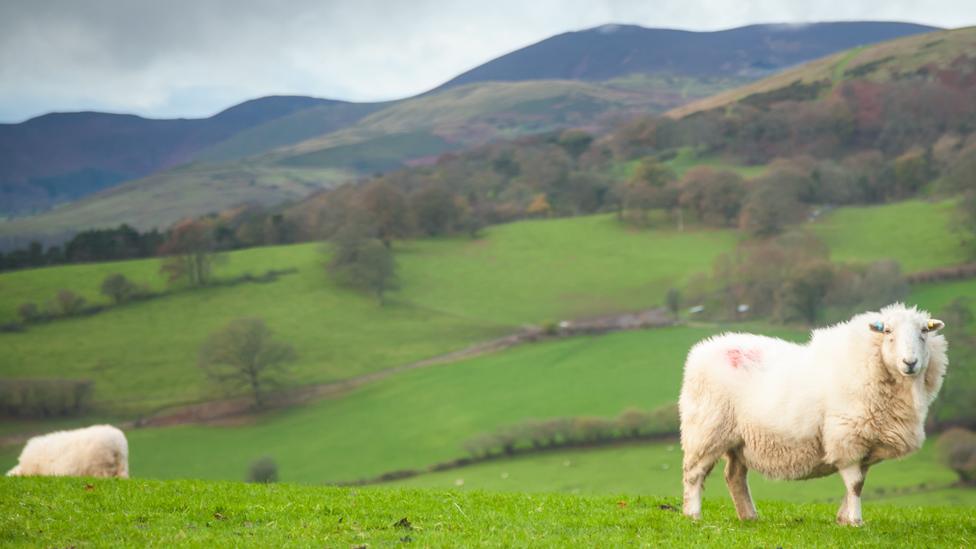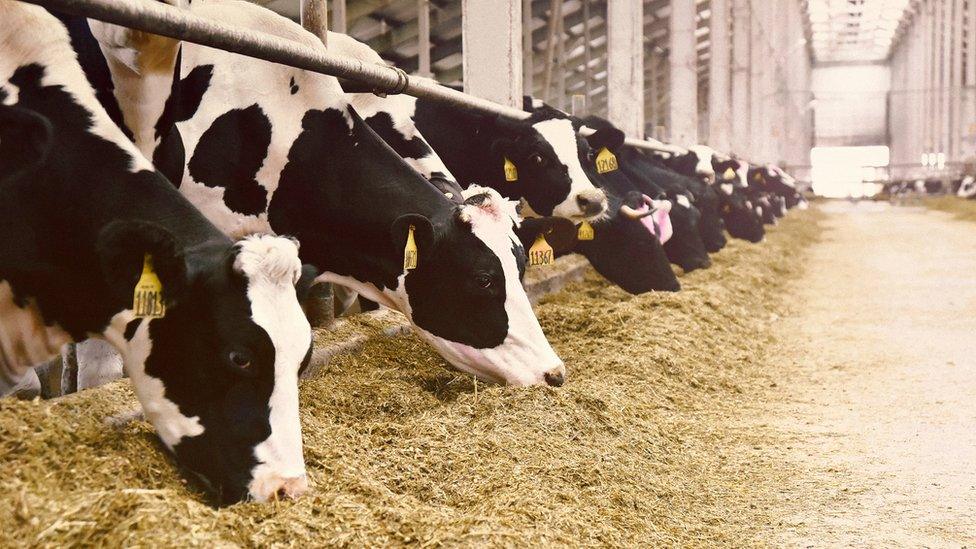Cows toilet trained to reduce greenhouse gas emissions
- Published
A cow uses a MooLoo as part of an experiment
Cows can be toilet trained in order to reduce greenhouse gas emissions, researchers have said.
In the study, which took place in Germany, scientists trained the animals to use a designated toilet. Their urine was then collected and treated.
The ammonia from cows' urine turns into the greenhouse gas nitrous oxide when it's mixed with soil.
Worldwide, about 10% of all greenhouse gas emissions from human activities comes from cattle.
Researchers attempted to teach 16 cows to use the toilet, dubbed the "MooLoo", at a farm owned by the Research Institute for Farm Animal Biology.
The animals were placed in the MooLoo pen and were rewarded with food for urinating. After this, they were then placed in an area next to the MooLoo and rewarded for walking into the pen and urinating.
Those who urinated outside of the MooLoo were sprayed with water for three seconds.
As part of the third stage of training, the distance from the toilet was extended, and the rewards and punishments continued.
By the end of the 10 training sessions, researchers found that 11 of the animals were successfully toilet trained.
"Very quickly, within 15 to 20 urinations on average, the cows would self-initiate entry to the toilet, external," Lindsay Matthews, a researcher involved in the study told Radio New Zealand.
"By the end, three quarters of the animals were doing three-quarters of their urinations in the toilet," he said.

The animals were rewarded with treats for using the designated toilet
"The calves showed a level of performance comparable to that of children and superior to that of very young children, external," the study said.
Researchers say that capturing 80% of cattle urine in a model like the MooLoo could lead to a 56% reduction in ammonia emissions.
They also say that reducing the levels of urine in the animals' living area will improve their hygiene and welfare.
Related topics
- Published2 May 2019

- Published30 August 2021
